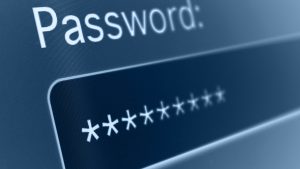These are 2023’s most common passwords – make sure yours isn’t on the list
NordPass has just released a study revealing the world’s 200 most common passwords in 2023. To celebrate the fifth anniversary of the study, the company’s …
NordPass has just released a study revealing the world’s 200 most common passwords in 2023. To celebrate the fifth anniversary of the study, the company’s …

With major hacks and data breaches happening almost daily, protecting your online accounts and passwords is as important as ever. You should use strong, unique …

Security researchers advise people to use unique, strong passwords every time hackers compromise an app or service. That’s because many people use weak passwords to …

It will never cease to baffle me how many people still choose childishly simple passwords like “12345” or “password” to attempt to secure their digital …

One of the things that often goes hand-in-hand with the countless hacks and data leaks we’ve written about in the past, and which continues to …

Hackers recently posted more than 3 billion user credentials online as part of a massive data breach compilation of emails and passwords. Read on for …

More than 3 billion user credentials were just posted online as part of a data breach compilation that’s mind-boggling in its scale. This collection of …
Google has a brand new security feature that every Android user out there should be using, as long as they operate devices with built-in fingerprint …

Reports earlier this week revealed what’s being referred to “Collection #1,” an 87GB pile of data that included no less than 773 million unique email …

Netflix password sharing is a common phenomenon, and practically everyone does it. It’s the only way to access the service free of charge. If you’ve …

CNBC tried and disastrously failed to give regular Internet users a lesson about the importance of password security and password strength. While trying to explain …

Security breaches affecting millions of users have come to light in recent years, yet we’re no better at protecting our personal data, or at picking …

These days, it appears as if no one is safe from hackers. Just a week after the security firm Kaspersky announced that they had been hacked …

A few weeks ago, Last Week Tonight’s John Oliver travelled all the way to Russia to interview Edward Snowden. Snowden, of course is responsible for numerous leaks that …

Email accounts often contain many personal details that owners think are safe from prying eyes, including login credentials for other websites written in plain text. …

Because people are generally unable to come up with rock-solid passwords on their own, many websites that require user-generated passwords employ “password strength meters” which inform users …

A teacher’s aide at an elementary school was fired last year for refusing to give her Facebook login credentials to her supervisors, ZDNet reported on …

It isn’t uncommon for companies to scan through the Internet looking for information on potential hires. Young job seekers, however, have found ways to avoid …

Security blog Defense in Depth has found a glaring security flaw in OS X Lion that enables hackers to change the password of any user …

Apple has promised to patch a security hole found in the iPhone and iPad following a report published by Germany’s Federal Office for Information Security. …

In a move that should surprise no one, Apple has banned the “Big Brother Camera Security” app that developer Daniel Amity used to swipe his …

Daniel Amitay, the iPhone developer who created “Big Brother Camera Security” application, has released a list of the top 10 iPhone passcodes. Amity implemented code …

BGR has provided extensive coverage of an ongoing saga that has seen numerous digital properties belonging to Sony fall under attack. To date, personal information …

According to reports from numerous gaming sites, the password reset page for Sony’s PlayStation Network has been exploited. Sony built the page in an effort …

Firefox 4 has been leaked for Mac and PC a day before the company said it would be officially available. Mozilla promises the user interface …

A new report from Cult of Mac suggests that Apple may have some nifty new features in store for the upcoming iPhone 5. Rumors that …

Google’s high profile war of words with China has garnered much public attention but the underlying cause of the dispute — the alleged hacking of …